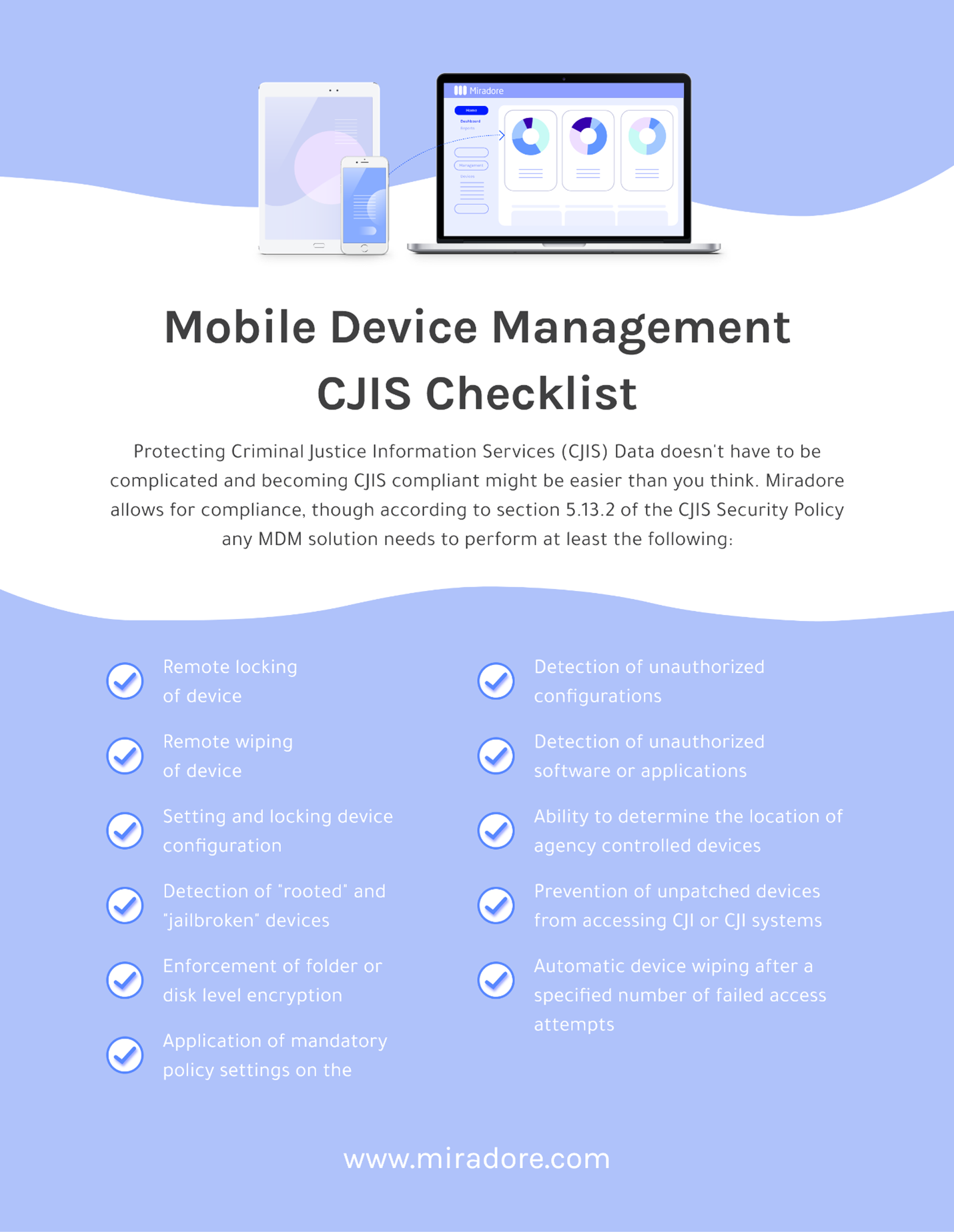In the ever-evolving landscape of technology, law enforcement agencies face unique challenges when it comes to securing sensitive criminal data while incorporating mobile devices into their operations. The rise of smartphones, tablets, and other portable devices has prompted many organizations to adopt Bring Your Own Device (BYOD) policies. However, for law enforcement agencies, compliance regulations, especially CJIS (Criminal Justice Information Services) compliance, play a crucial role in shaping the way mobile devices are utilized within the force.
While BYOD policies can be customized to fit individual organizations, law enforcement agencies face additional layers of complexity. In addition to standard security measures such as mobile threat detection software, access regulation, and app restrictions, CJIS-compliant BYOD policies mandate multi-factor authentication (MFA) and enrollment in agency-controlled Mobile Device Management (MDM) systems. These requirements are essential to prevent data breaches, unauthorized access, and potential violations of CJIS compliance.
BYOD in law enforcement introduces risks like data leakage, cyber incidents, and cross-contamination of personal and professional credentials. Law enforcement officers using personal devices for work-related activities must be vigilant about potential security threats such as phishing attacks and unsecured Wi-Fi usage, which could compromise sensitive information. Furthermore, the responsibility for mobile device management in case of a breach must be clearly defined to prevent delays in reporting incidents and addressing security concerns.
CJIS, established by the FBI in 1992, serves as the central repository for criminal justice information. Adherence to CJIS compliance is non-negotiable for organizations accessing criminal justice services and information. CJIS compliance ensures the implementation of robust security controls, protecting against threats such as loss, theft, unauthorized access, malware, and electronic eavesdropping. Non-compliance can lead to denial of access to critical information, jeopardizing law enforcement operations.
CJIS compliance acts as the guiding principle, shaping BYOD policies and ensuring the protection of sensitive criminal data. By understanding the unique challenges, implementing comprehensive security protocols, and investing in CJIS-compliant Mobile Device Management solutions, law enforcement agencies can harness the power of mobile devices while upholding the highest standards of data security and integrity.
How does Miradore MDM help law enforcement achieve CJIS compliance?
Miradore offers powerful, efficient Android, Apple, and Windows management in one user-friendly platform and is CJIS compliant based on the features and functions outlined in Section 5.13.2 Mobile Device Management (MDM) of the Criminal Justice Information Services Security Policy.
